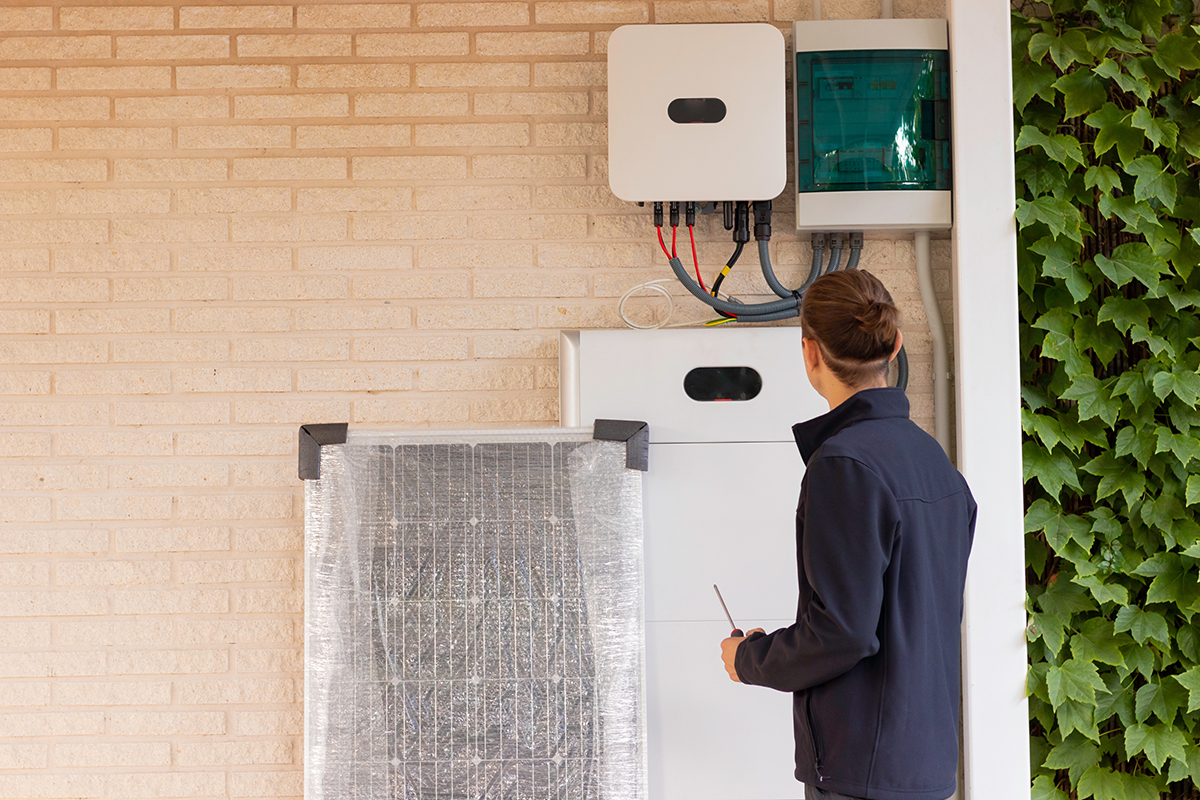Battery Storage Systems: A Growing Opportunity for Electricians

Published: Monday, 09 June 2025
Driven by the increasing adoption of renewable energy, we are seeing the energy landscape undergo a rapid transformation. With solar and wind power being the leading energy sources, to harness the full potential of these energy sources, Battery Storage Systems (BSS) are emerging as a critical technology. In this article we will look at the potential shift and opportunity for electricians to expand their skillsets and capitalise on a growing market.
The Role of Electricians
For battery storage, electricians are in a great position to play a pivotal role in the installation, maintenance, and troubleshooting process of these systems. With the skill set electricians have, they can integrate BSS systems into homes, businesses, and utility grids.
Electricians may need additional training to acquire their certifications for battery technology, energy storage systems, and relevant safety protocols.
Types of Battery Storage Systems
Lithium-ion batteries: The current popular choice, lithium-ion batteries are focused on having a long lifespan without the need for maintenance. Due to their high energy density and low self-discharge, lithium-ion is the main type of BESS. The main issue with some of these systems is fire safety, as some of the systems contain cobalt, incidents have remained around 10 – 20 per year; however, in recent years research has gone into mitigating measures for fire safety.
Lead-acid batteries: The first generation of batteries, these are used in older BESS systems. Compared to the modern systems, they have lower energy density, but they are still able to offer high surge currents. These batteries produce hydrogen and oxygen, so water must be refilled regularly to avoid damage to the battery, and the gases have to be vented out to avoid explosion risks. Overall, lead-acid batteries struggle to compete with new systems; however, they are still used due to their low costs and proven reliability.
Sodium-based batteries: In the earlier stages of BESS utilisation, sodium-based batteries offer a lower cost, improved safety characteristics, and similar power delivery. The main downside is the lower energy density. The main change is they replace lithium with sodium intercalating ions, and it can operate safely at higher temperatures. Sodium is yet to be fully commercialised, but we expect to see more integration within the coming years.
Flow batteries: A flow battery consists of two tanks that the chemical components are dissolved in liquids that are pumped through separate sides of the membrane. The liquid electrolytes used to store energy offer longer lifespans and a higher power output.

Key application of BSS
BSS offers a range of applications, including:
Residential energy storage: the main application we see used for BSS is storing excess solar energy for later use. This reduces our reliance on the grid, helping you lower your energy bills.
Commercial and industrial energy storage: Provides backup power, peak saving, and load shifting to optimise energy consumption and reduce cost.
Grid-scale energy storage: Balancing supply and demand, improving grid stability, and integrating renewable energy sources.
Economic Opportunities for Electricians
As the demand for BSS grows, it offers significant economic opportunities for electricians:
Increased demand for installation and maintenance services: With more homes and businesses investing in BSS, professionals with the correct skillset will increase, providing more job opportunities for electricians.
Opportunities for new business ventures: Electricians will become available to open businesses that specialise in BSS, offering a comprehensive service with features like design and installation to maintenance and repair.
Potential for higher earnings: With the specialised knowledge and skills from BSS, it can lead to higher pay rates and increased profitability.
Challenges and Considerations
With the potential the BSS market offers, electricians need to be aware of the challenges and considerations involved.
Safety Concerns: With the risk of fire, it is important to follow the correct safety protocols when it comes to handling batteries to help prevent accidents.
Technical Complexities: The intricate components in the systems demand a deep understanding of their operation and troubleshooting.
Regulatory compliance: It is important you stay up to date with local and national regulations. These regulations are crucial in ensuring safe and compliant installations.
Battery storage systems are set to change the energy landscape, and electricians are expected to play a key role in the transformation. By gaining the necessary skills and knowledge, electricians will be able to capitalise on the demand for BSS, enhance their career prospects, and contribute to a more sustainable energy future. To shop the range of our battery storage solution, you can find them on our website here.
If you are looking to learn more about Solar and Battery Storage, you can check out our article here

